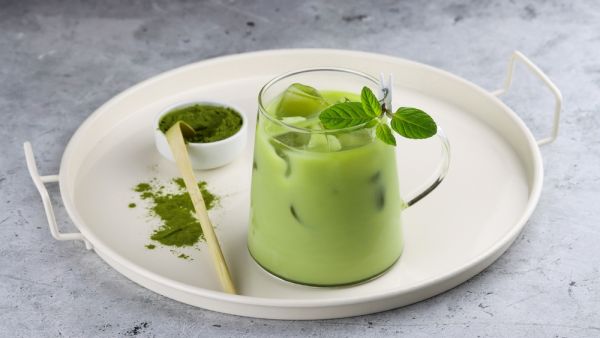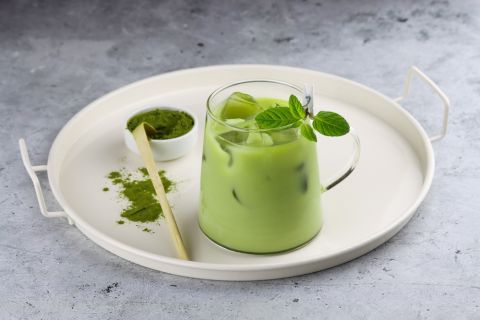ALBAWABA When it comes to choosing a morning beverage, coffee and matcha are two popular options that often spark debate about which is better for health. Both drinks offer unique benefits and cater to different preferences and health goals.
Understanding the differences between coffee and matcha can help you decide which might be the better choice for you.
Caffeine Content and Energy Levels
One of the most notable differences between coffee and matcha is their caffeine content. Coffee is known for its high caffeine levels, with a standard cup containing about 95 milligrams of caffeine. This amount provides a quick and powerful energy boost, helping you feel more awake and focused. However, coffee’s high caffeine content can also lead to a “crash” later in the day, leaving you feeling tired or jittery.
Matcha, a finely ground powder made from green tea leaves, contains less caffeine, typically around 35 milligrams per serving. Despite having less caffeine, matcha offers a more sustained energy boost due to the presence of L-theanine, an amino acid that promotes relaxation without causing drowsiness. L-theanine helps to smooth out the effects of caffeine, providing a calm and focused energy that lasts longer. This makes matcha an appealing option for those who are sensitive to caffeine or looking for a less intense stimulant.
Antioxidants and Nutrient Content
When it comes to nutrient content, matcha is particularly rich in antioxidants, especially a type called catechins, with epigallocatechin gallate (EGCG) being the most potent. EGCG has been linked to various health benefits, including improved metabolism, reduced inflammation, and a lower risk of chronic diseases. Matcha contains significantly more antioxidants than regular green tea because, when you drink matcha, you consume the entire tea leaf rather than just steeping it in water. This gives matcha an edge in terms of antioxidant content compared to coffee.
Coffee, however, is also a good source of antioxidants, particularly chlorogenic acids, which have been associated with reducing inflammation and protecting against heart disease. For many people, coffee is one of the primary sources of antioxidants in their diet. Additionally, coffee has been linked to a lower risk of several health conditions, including Parkinson’s disease, type 2 diabetes, and certain cancers.
Impact on Digestion and Metabolism
Both coffee and matcha can positively influence metabolism, but they do so in different ways. Coffee is known to increase metabolism and promote fat burning due to its high caffeine content. It can also suppress appetite, which may aid in weight management. However, coffee can sometimes be harsh on the digestive system, leading to issues like acid reflux or upset stomach, especially when consumed on an empty stomach.
Matcha, on the other hand, tends to be gentler on the digestive system. The L-theanine in matcha not only provides a calming effect but also helps in reducing the acidic impact that caffeine might have on the stomach. Additionally, the catechins in matcha have been shown to boost metabolism and aid in fat oxidation, making matcha a useful beverage for those looking to support weight management without the potential digestive discomfort that coffee might cause.
Mental Health and Cognitive Function
Both coffee and matcha are known for their cognitive benefits, though they affect the brain in slightly different ways. Coffee’s caffeine content can improve focus, alertness, and concentration, making it a popular choice for those needing a quick mental boost. Regular coffee consumption has also been linked to a lower risk of neurodegenerative diseases like Alzheimer’s and dementia.
Matcha offers cognitive benefits as well, largely due to the combination of caffeine and L-theanine. This pairing creates a state of calm alertness, which can enhance focus, memory, and cognitive function without the jitteriness that some people experience with coffee. For tasks that require sustained attention or creative thinking, matcha might be the better option.
Which Is Better for Health?
Ultimately, whether coffee or matcha is better for your health depends on your individual preferences, health goals, and how your body responds to each beverage. Coffee provides a quick energy boost and is rich in antioxidants, making it a staple for many. Matcha, with its balanced energy, high antioxidant content, and calming properties, offers a gentler alternative that can support both mental clarity and physical health.
Both beverages can be part of a healthy lifestyle when consumed in moderation. The best choice for you is the one that aligns with your personal needs, tastes, and how you feel after drinking it. Whether you prefer the robust flavor of coffee or the earthy, nuanced taste of matcha, both drinks have their own set of benefits that can contribute to your overall well-being.








